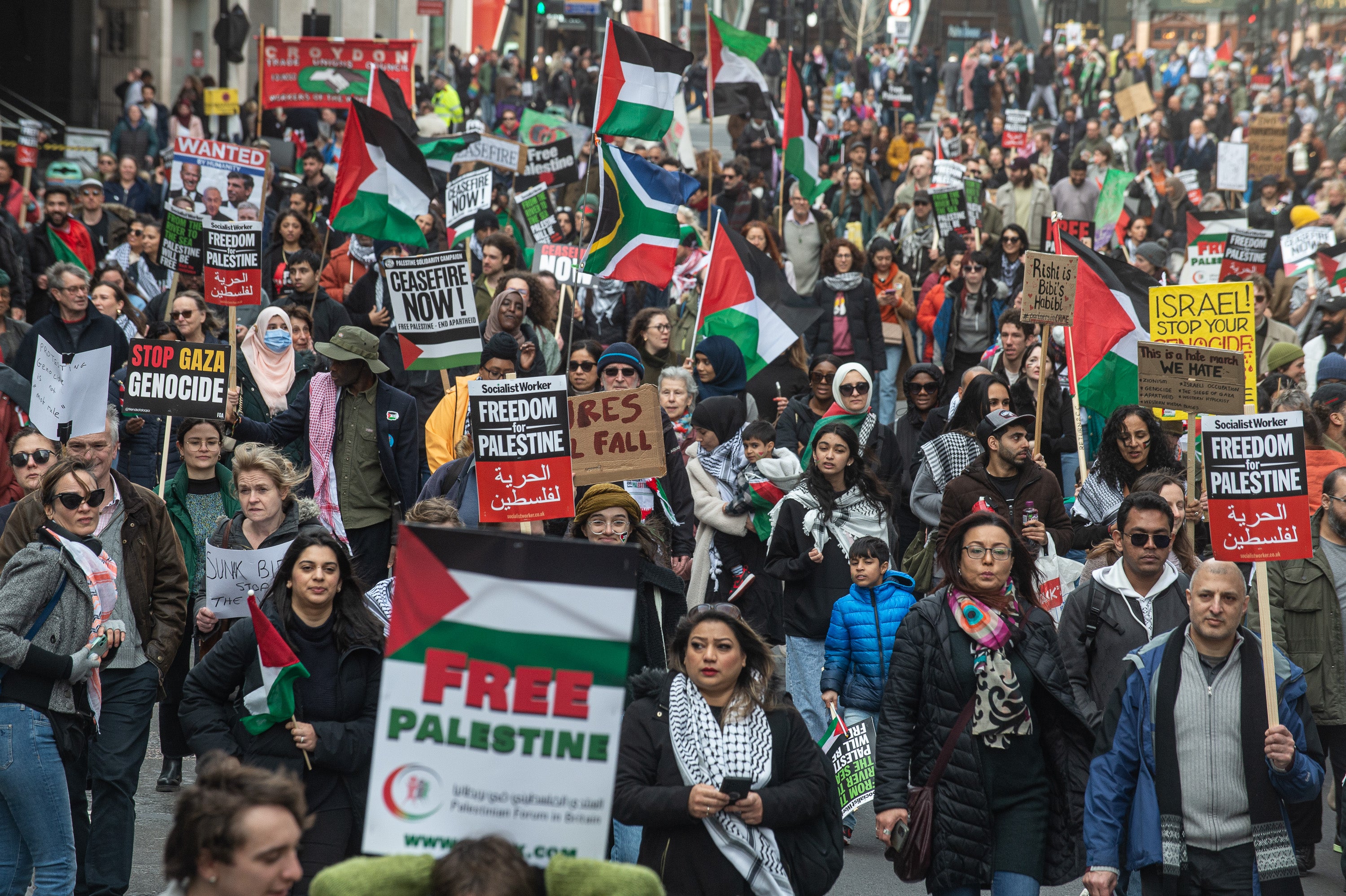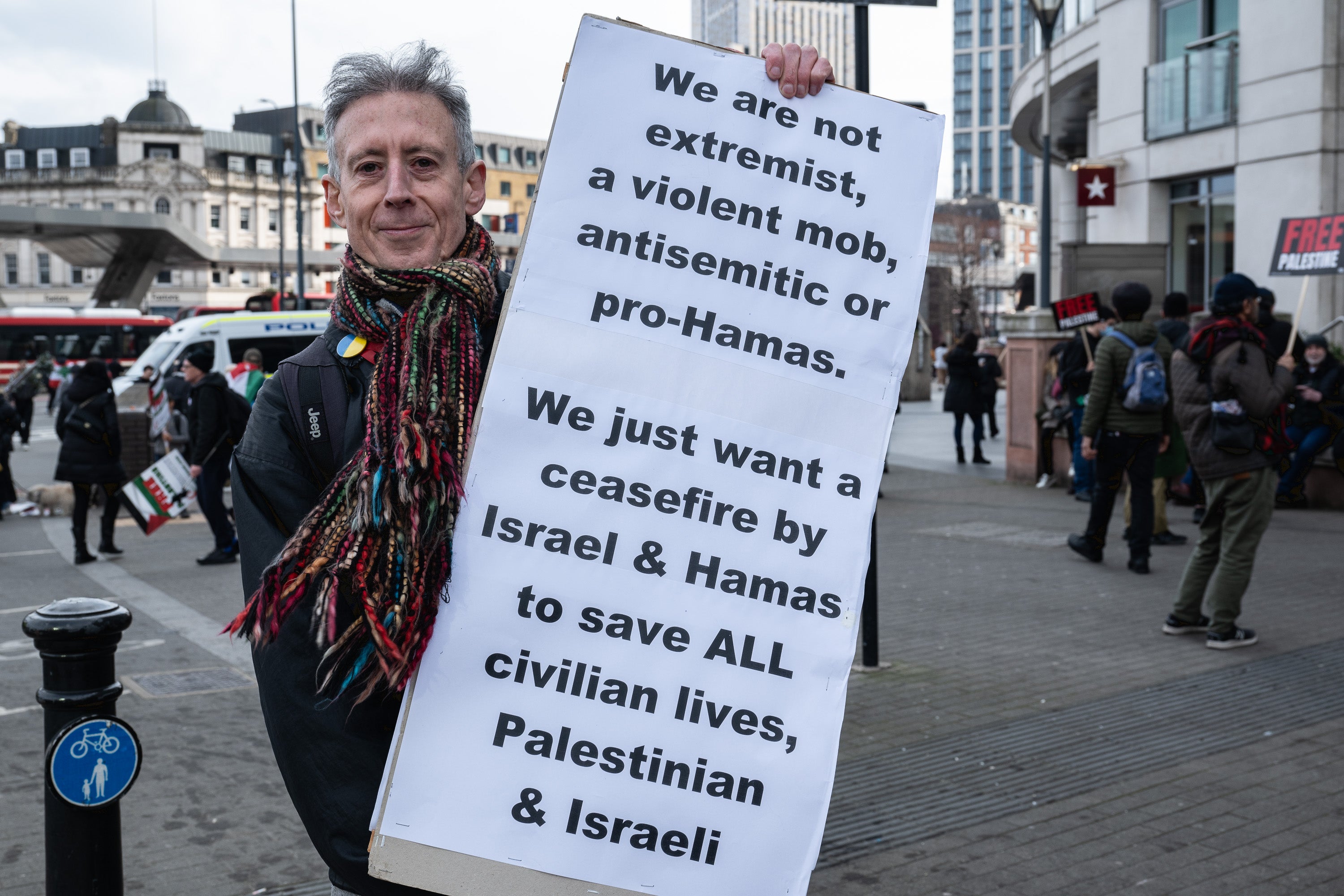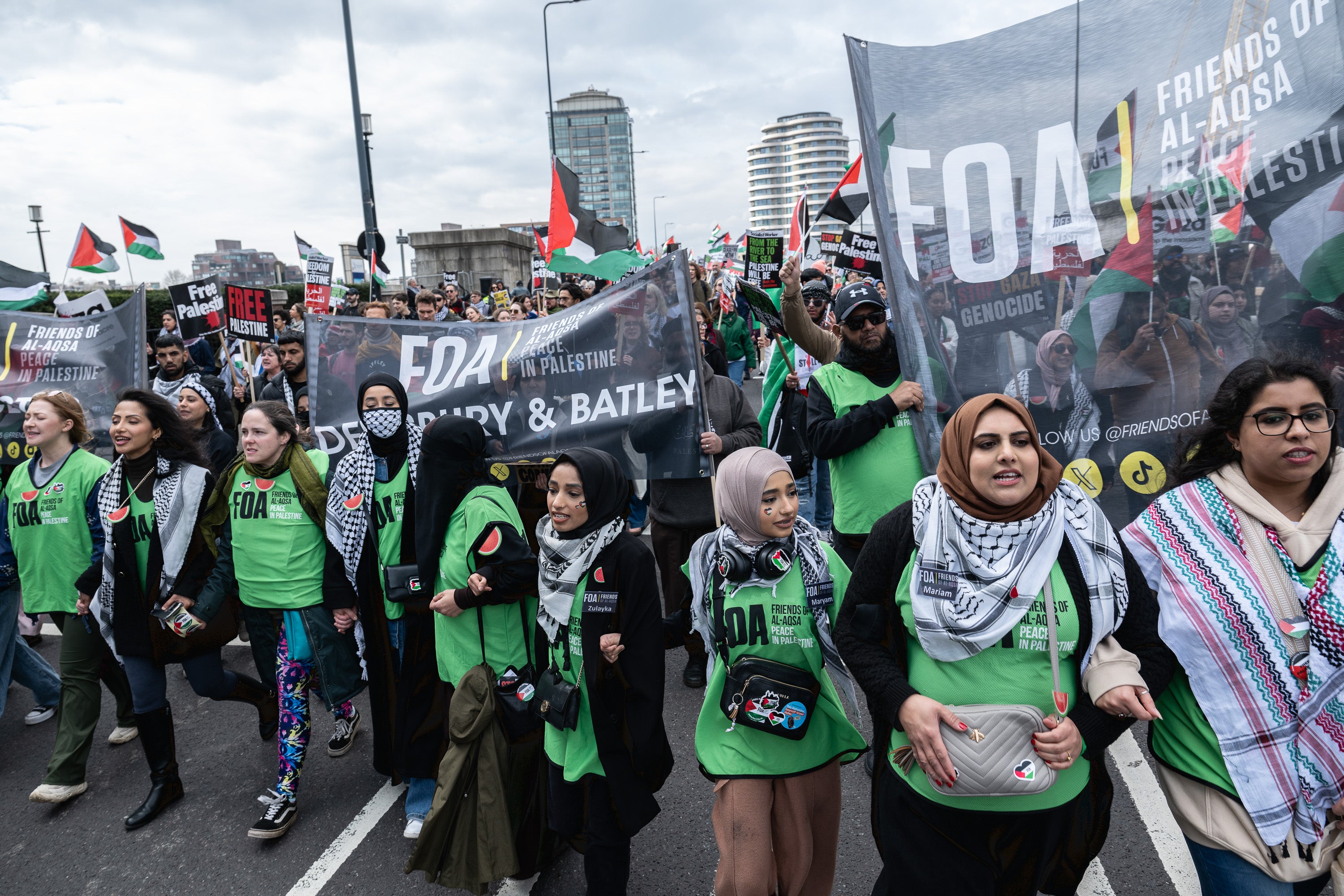Michael Gove says ‘good-hearted’ pro-Palestine marchers should question some leading ‘extremist organisations’
Communities secretary Michael Gove was speaking as thousands of protesters joined a march in central London on Saturday
Your support helps us to tell the story
From reproductive rights to climate change to Big Tech, The Independent is on the ground when the story is developing. Whether it's investigating the financials of Elon Musk's pro-Trump PAC or producing our latest documentary, 'The A Word', which shines a light on the American women fighting for reproductive rights, we know how important it is to parse out the facts from the messaging.
At such a critical moment in US history, we need reporters on the ground. Your donation allows us to keep sending journalists to speak to both sides of the story.
The Independent is trusted by Americans across the entire political spectrum. And unlike many other quality news outlets, we choose not to lock Americans out of our reporting and analysis with paywalls. We believe quality journalism should be available to everyone, paid for by those who can afford it.
Your support makes all the difference.“Good-hearted” pro-Palestinian marchers should question whether extremist groups are behind some of the protests, Michael Gove has said.
He said those who have taken part in demonstrations should be aware they could be “lending credence” to extremists.
The communities secretary, who is set to produce a new official definition of extremism within days, also warned that chanting “from the river to the sea” meant calling for the “erasure” of Israel and risked fuelling hate.
The most recent march, on Saturday, saw thousands of people take to the streets of London to demand a ceasefire in Gaza, with singer Charlotte Church among those attending.
His view was echoed by the health secretary Victoria Atkins, who said “well-meaning people’” were being “caught up” in extremism at pro-Palestine demonstrations.
Former Conservative leader Michael Howard agreed with the suggestion that parts of London had become “no-go areas” for Jewish people while marches were taking place. “Yes, unfortunately, it is true,” Lord Howard, who is himself Jewish, told the BBC’s Sunday with Laura Kuenssberg programme.
Mr Gove’s officials fear the new definition could face a legal challenge, according to reports.
One said the plan was “never going to work” and the government was trying to bring it in ”without a public consultation on the definition, or proper engagement with faith leaders”, according to The Observer.
Mr Gove said he hoped his new definition of extremist groups would help protesters decide whether or not to attend pro-Palestinian events.
“If we’re clear about the nature of extremist organisations, then I think that means that some of the people – and there are good-hearted people who go on these marches, I don’t agree with them, but they’re moved by suffering and they want peace – but it may help some of them to question who are organising some of these events. I won’t go into details now, but we will later,” he told The Sunday Telegraph.

“Some of the events that have been organised, have been organised by extremist organisations.
“That doesn’t mean that people who have gone on them are extremist, quite the opposite. But it means that you can begin to question: do you really want to be lending credence to this organisation? If you do, fair enough. But now there is no excuse for ignorance.”
“From the river to the sea” – a reference to a Palestinian state stretching from the River Jordan to the Mediterranean – is “not a call for peace … when you’re saying ‘from the river to the sea’, you’re explicitly saying: ‘I want to see the end of Israel as a Jewish state, the Jewish homeland erased.’

“Now, be clear about that and be clear about what that means.
“Be clear about the fact that you know a key Islamist demand is the erasure of what they see as the ‘Zionist entity’ or the ‘crusader Zionist state’.
“And therefore, let’s be clear that there is a difference between a cry for peace and the legitimisation of an extremist position which intimidates and leads to hate.”
The government’s new definition will replace one in the existing Prevent counter-radicalisation programme and enable the government and other public bodies to ban funding and engagement with Islamist and far-right groups.
But Mr Gove rejected fears from some Tories that the new definition could encompass gender-critical feminists or devout religious groups.

“It’s only extremism if you translate that into a political ideology that is anti-democratic,” he said.
“Private belief should be cherished. Free speech has to be protected.”
He also suggested that foreign governments such as Iran could be behind some of the extremist groups operating in the UK.
“One of the things that we’re explicitly looking at is the way in which foreign state and non-state actors seek to encourage extremism here,” he said.
“And again, this is inevitably sensitive work about which I can say only a very limited amount because it’s not only Iran that attempts to use some of these forces to destabilise British democracy.”
Last week, Rishi Sunak urged protesters to prevent extremists from infiltrating their ranks.
In a dramatic speech outside Downing Street, he also confirmed that senior police chiefs would be expected to police rather than simply manage pro-Palestine protests.
Despite his warning, marches have continued and campaigners have been quick to dismiss his concerns.
Luca Salice, 67, co-chair of the Camden Palestine Solidarity Campaign, said: “Rishi Sunak is losing an election. He is scrambling. I don’t think our protests are extremist. I don’t see how being in favour of human lives is extremist.”
